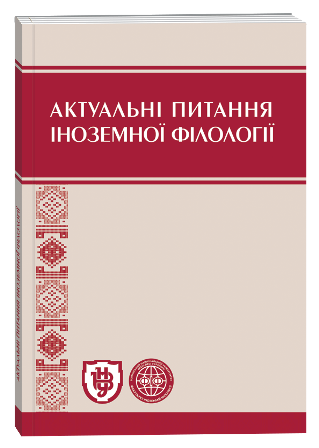VERBAL EXPLICATION OF THE CONCEPT UKRAINE IN THE MODERN GERMAN-LANGUAGE POLITICAL DISCOURSE
DOI:
https://doi.org/10.32782/2410-0927-2024-20-6Keywords:
concept, concept UKRAINE, nominal field, nuclear, near-nuclear zones, near and far peripheryAbstract
The article presents a comprehensive structural and cognitive analysis of the concept UKRAINE in German-language political discourse. The relevance of the work is caused by the need to analyze the concept of UKRAINE to understand the attitude of representatives of the German linguistic community towards Ukraine in particular and the political situation in Ukraine in general. The study aims to identify the verbal resources of the representation of the concept UKRAINE in the German-language political discourse. The novelty of the work lies in the fact that for the first time, the concept of UKRAINE as a conceptual unit in the mental understanding of Germans was studied, based on its representation during the military period from February 2022 to January 2024, and the nominative field of the concept was created, taking into account all its components – conceptual, value and figurative. The article substantiates the concept's dynamic nature and complex structure, including conceptual, figurative-associative, and value (valorative) components, organized according to the field principle. The research carried out a thorough analysis of lexicographic sources, based on which the conceptual element in the concept UKRAINE is described. Through the contextual and cognitive-semantic analysis, the author identifies the linguistic units that constitute the dominant (core), the near-nuclear zone, the near and far periphery of the nominative field of the concept UKRAINE in the German-language political discourse during the period of russia's war against Ukraine. It has been found that the list of linguistic units that make up the periphery of the nominal field of the concept UKRAINE is not stable and can be supplemented and expanded due to the extremely active events on the territory of Ukraine, which cannot but influence the perception of Ukraine by representatives of the German linguistic community.
References
Бутирський О. А. Україна у дзеркалі західних ЗМІ. Вісник Київ. нац. ун-ту ім. Т. Шевченка. Сер.: Журналістика. 2003. Вип. 11. С. 53–54.
Іващенко В. Л. Функціональна топологія концептів як одиниць культури. Вісник Львівського університету. Серія філологічна. 2004. Вип. 34. Ч. 1. С. 390–397.
Ніконова В. Г. Трагедійна картина світу в поетиці Шекспіра: Монографія. Дніпропетровськ: Вид-во ДУЕП, 2007. 364 с.
Огляд німецьких ЗМІ про ситуацію в Україні (30 листопада – 6 грудня). URL: https://uacrisis.org/de/38336-deutsch-30-november-bis-6-dezember-2015-was-deutschsprachige-medien-zur-ukraine-berichteten (дата звернення: 26.12.2024)
Приходько А. М. Концепти і концептосистеми в когнітивнодискурсивній парадигмі лінгвістики: монографія. Запоріжжя: Прем’єр, 2008. 332 с.
Прохорова П. В. Антропоцентрипетальні концепти як домінанти німецькомовної картини світу: монографія. Мелітополь: ТОВ «Колор Принт». 2014. 162 с.
Селіванова О. О. Сучасна лінгвістика: напрями і проблеми. Полтава: Довкілля-К. 2008. 712 с.
Семенюк Т. П. Когнітивно-семантичні та прагматичні особливості німецькомовних полікодових текстів (на матеріалі комерційної реклами) : дис. на здобуття наук. ступеня канд. філол. наук : 10.02.04. Запоріжжя, 2017. 257 с.
Хоменська І. В. Вербалізація концепту Україна в українському художньому дискурсі : автореферат дис. ...канд. філол. наук. Київ, 2016. 20 с.
Шевченко І. С. Когнітивно-комунікативна парадигма і аналіз дискурсу. Дискурс як комунікативний феномен. Харків : Константа. 2005. С. 9–20.
Die Ukraine zwischen Ost und West: Jetzt von Russland angegriffen. URL: https://www.infosperber.ch/dossier/die-ukraine-zwischen-ost-und-west/ (abgerufen am 25.03.2024)
Duden. URL: https://www.duden.de/ (abgerufen am 25.03.2024)
Wortbedeutung. URL: https://www.wortbedeutung.info/ (abgerufen am 8.03.2024)







